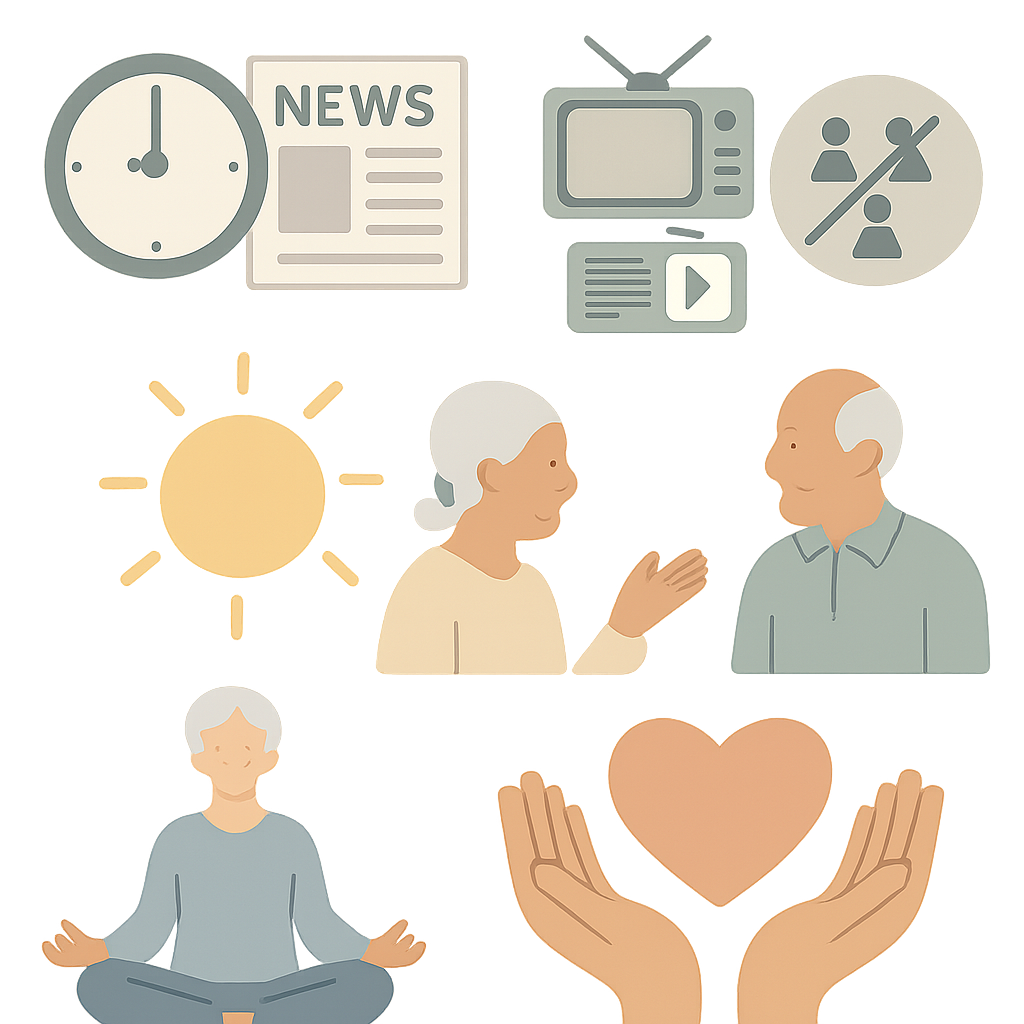Staying Informed, Staying Well
A Senior’s Guide to Balanced News Consumption
In today’s fast-paced digital age, keeping abreast of current events can feel overwhelming—especially for seniors who value staying connected and informed. The relentless news cycle, often filled with conflict and uncertainty, can heighten stress and anxiety, regardless of political views. Yet, being engaged with the world doesn’t have to come at the cost of mental well-being. Here’s how mature adults can remain psychologically healthy while keeping up with news updates.
Understanding the Impact of News on Well-being
Regular exposure to troubling headlines—whether about politics, global events, or societal issues—acts as a constant source of emotional strain. This continuous stream can contribute to feelings of helplessness, worry, or sadness, particularly for those who lived through different, sometimes calmer, eras. Recognizing that it’s common to feel this way is the first step toward managing emotional responses. Older adults should remember: it’s okay to feel affected, but it’s important to take action.
Practical Strategies for Healthy News Consumption
Set Boundaries: Choose specific times for catching up on current events—such as morning or evening—rather than checking updates throughout the day. This helps create a healthy separation between news and everyday life.
Curate Your Sources: Select reputable media outlets that focus more on facts and less on sensationalism. Diversify your sources to get balanced coverage, and avoid echo chambers that only reinforce one viewpoint.
Limit Social Media: Social platforms often amplify negative or divisive content. Consider reducing time spent scrolling through feeds, or use features to mute or hide triggering topics.
Seek Positive Stories: Make a habit of searching for uplifting news or community achievements to counterbalance heavier headlines.
Stay Socially Connected: Discuss what’s happening in the world with trusted friends or family members, but also set boundaries if conversations become too stressful.
Practice Relaxation Techniques: Incorporate mindfulness, deep breathing, or gentle exercise into your daily routine to help manage stress from news exposure.
Keeping Perspective and Maintaining Control
While staying informed is valuable, it’s essential to remember that much of what happens in the world is beyond any individual’s control. Focusing energy on local engagement—such as volunteering, community events, or supporting neighbors—can provide a sense of purpose and agency. Additionally, seniors should remind themselves that it’s perfectly acceptable to step back and take a break from current events when needed.
When to Seek Support
If news-related stress begins to interfere with daily life—causing sleep problems, persistent sadness, or withdrawal from usual activities—it may be time to seek support. Talking with a healthcare provider or counselor can help address these concerns, and joining support groups with peers can provide comfort and shared coping strategies.
Staying engaged with the world is a sign of vitality, but protecting psychological health is just as important as staying informed. By setting limits, choosing quality content, and nurturing social connections, seniors can enjoy the benefits of being in the know—without the emotional toll. Remember: it’s possible to be both informed and at ease.


